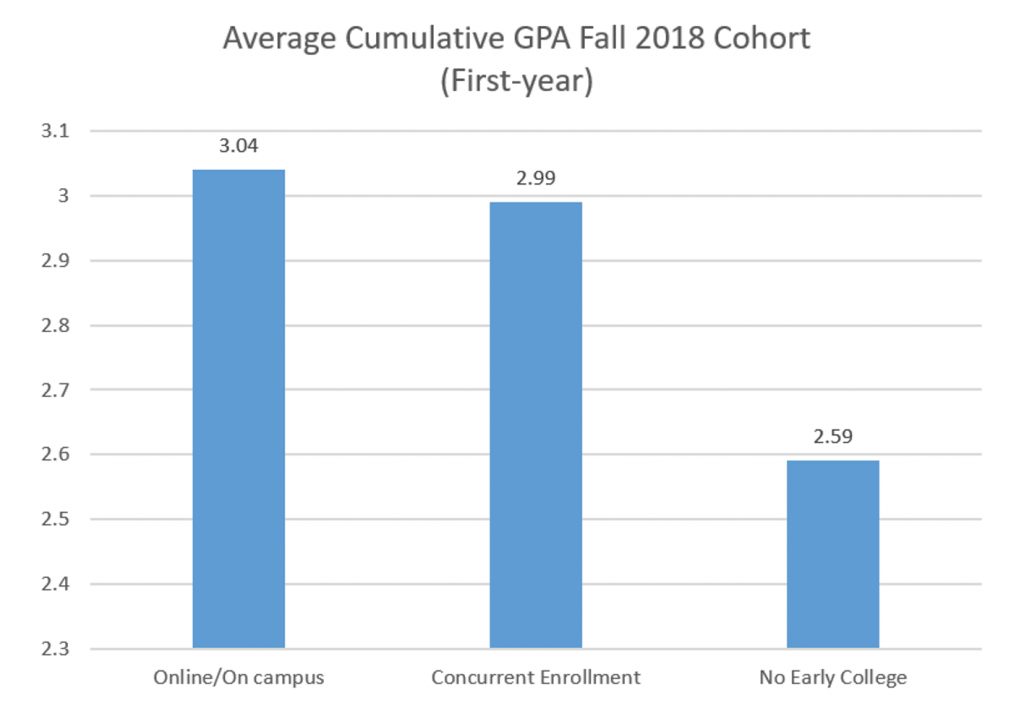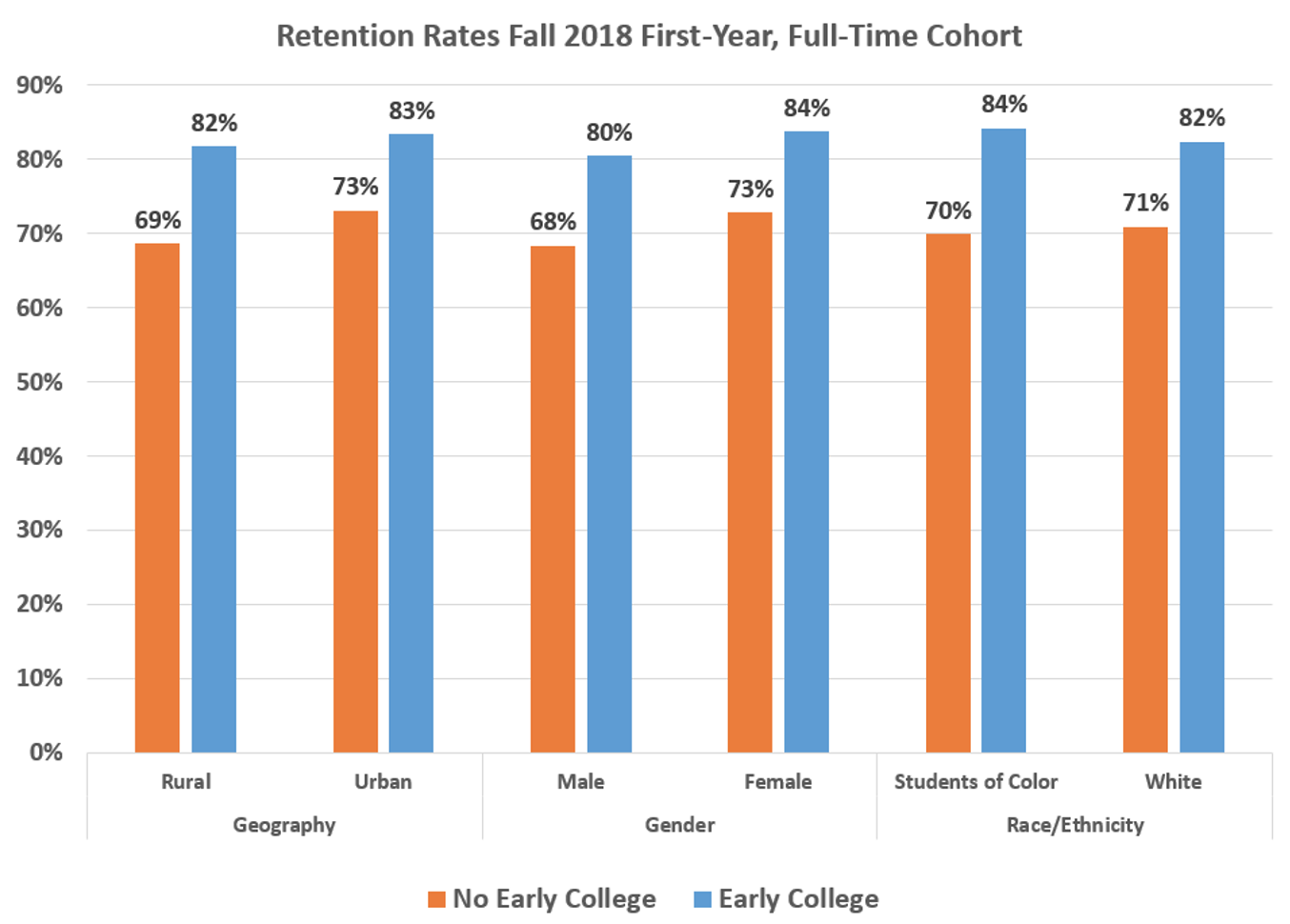Early College (EC) students have higher GPAs compared to students with no EC courses. The following data are based on Maine EC students who enroll in University of Maine System (UMS) institutions after high school graduation.
Data are consistent regardless of whether students took courses online, on campus, or in courses taught by their high school teacher (CE). This data supports the assertion that Maine’s high school teachers, in collaboration with university faculty, are providing a high quality and rigorous curriculum that reflects the outcomes of the online/on campus sections. CE high school teachers work closely with faculty liaison to ensure that courses are comparable to university courses. All University of Maine System (UMS) campuses are working towards full implementation of the accreditation standards established by the National Alliance of Concurrent Enrollment Partnerships (NACEP). NACEP is the only national membership-based organization representing concurrent and dual enrollment partnerships (National Alliance of Concurrent Enrollment Partnerships, 2020). NACEP standards are considered to be best practices by the New England Commission of Higher Education (New England Commission of Higher Education, 2016).
The differences in average GPA for UMS EC students of 0.45 and 0.4 are higher than reported in national studies (0.11 and 0.16). According to An and Taylor (2019) “The weight of evidence shows students who participated in dual enrollment generally do better in college than nonparticipants. This finding is robust to different student samples and different statistical models, and it remains even after accounting for baseline differences between those who participated in dual enrollment and those who do not” (p. 116). Baseline differences accounted for in these national studies include factors such as prior academic ability and student’s demographic background.
EC students are more likely to persist during their first year of college. The graph below shows retention rates for students who graduated from high school, matriculated in 2018, and returned to that university the subsequent fall. Males and under-represented minorities benefit most, with improved retention rates of 12% and 14% respectively, when compared to similar peers with no EC courses. Persistence is understudied nationally, but the few studies available confirm that EC participation increases first-year persistence.


